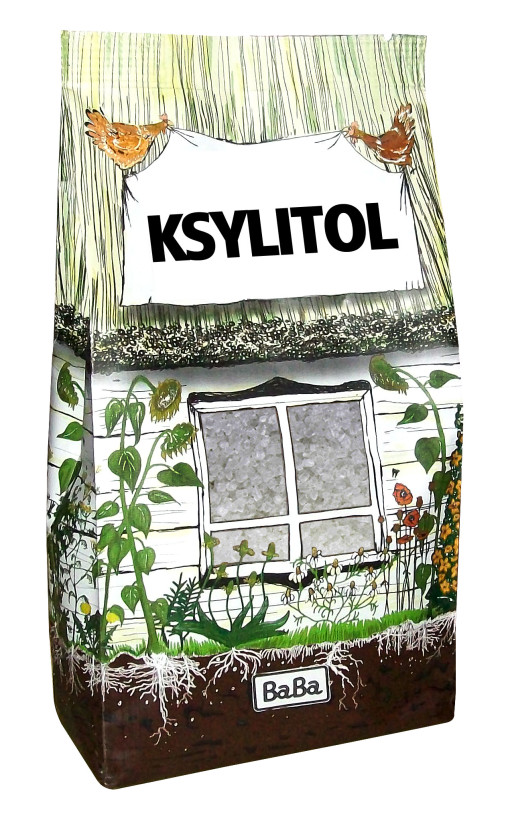Xylitol
Xylitol was discovered late in the 1890’s. It wasn’t until the 1930’s that xylitol was synthesized into a pure form, much like what we use today. It was used as a sugar replacement during World War II in some countries when sugar shortages occurred. Today you find it on health food store shelves and also added to a number of products including chewing gum, mouthwash, floride treatments, toothpaste, and in some pharmaceuticals.
Xylitol is in a class of substances called “polyols,” more commonly known as sugar alcohols. Sugar alcohols are neither sugar nor alcohol, but have a chemical structure that has similarities of both sugar and alcohol (I won’t bore you with anymore chemistry). There are a number of other sugar alcohols including maltitol, erythritol, mannitol, and sorbitol, amongst others.
Fibers of fruits and vegetables naturally contain xylitol. It can be extracted from various berries, oats, murshroms, corn husks, sugar cane, and birch trees. This fermented sweetener is made from whole plant pulp, but must undergo an extensive treatment and processing to become the sugar like crystals you find sitting on the shelf at health food stores. It’s hotly debated whether this sweet substance resembling sugar should actually be called a “natural” sweetener.
Benefits of Xylitol
This sweetener with a strange name actually has a number of well established benefits.
Dental Health
It’s been documented since the 1970’s that xylitol, when used regularly, can help to prevent tooth decay. The research on xylitol for dental health did not stop in the 1970’s. A quick survey of the literature reveals a veritable cornucopia of peer reviewed journals indicating the dental benefits associated with xylitol. Xylitol not only prevents bacterial growth, but also helps to remineralize teeth that already have begun to decay.
Osteoporosis
For this reason, scientists speculate that xylitol may help to prevent and treat osteoporosis. There are a number of articles demonstrating these effects in rats, but I did not come across any studies using humans at this point.
Ear Infections
There have been numerous studies that support decreased ear infections with the use of xylitol. This is probably due to xylitol’s anti-bacterial properties.
Yeast & Bacteria in the Gut
Xylitol is a prebiotic; that is, it encourages good gut flora (helpful microorganisms that live in your digestive tract). Sugar on the other hand encourages the growth of unhealthy bacteria and yeast in the gut. Xylitol is a fantastic option for those who deal with chronic yeast infections such as candida. Unlike some artificial sweeteners (like splenda and aspartame) xylitol does not encourage the growth of yeast in the gut.
Blood Glucose & Insulin
Xylitol is absorbed more slowly than sugar, in fact it’s not even completely broken down in our system. As such, it does not cause a rapid spike in blood glucose. Xylitol is typically a wonderful substitute for diabetics as it has little effect on glucose and none on insulin.
Infection
Some scientists have indicated that xylitol increases WBC (specifically netrophil’s). These are cells that help us fight off infection.

